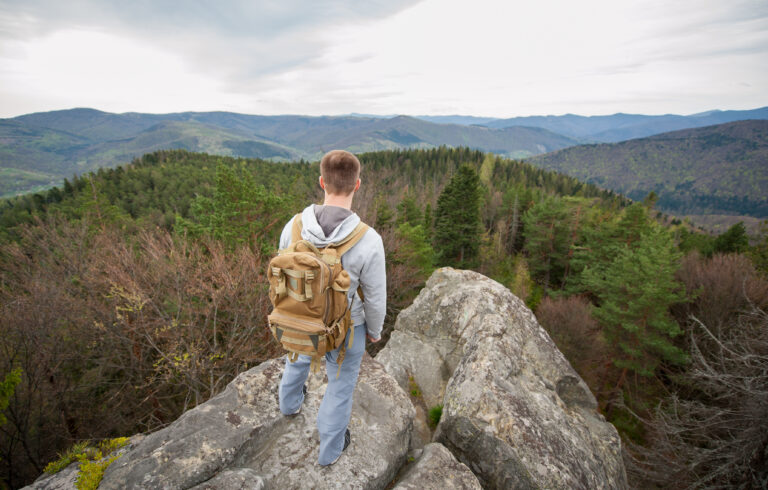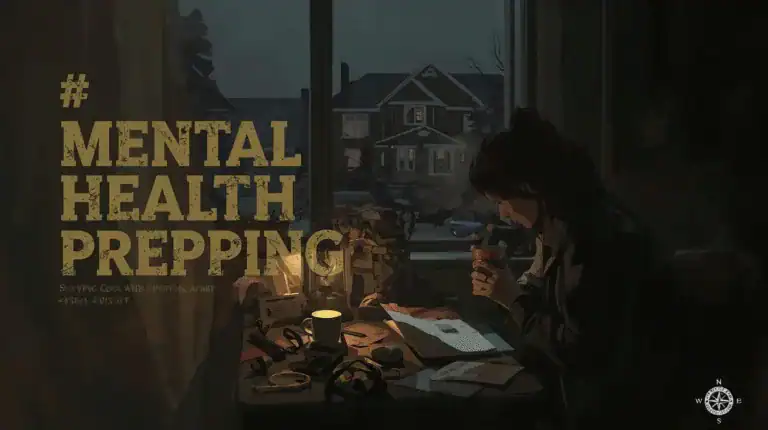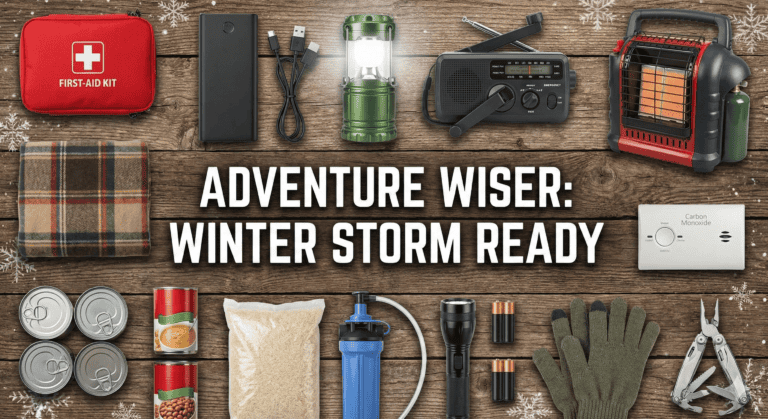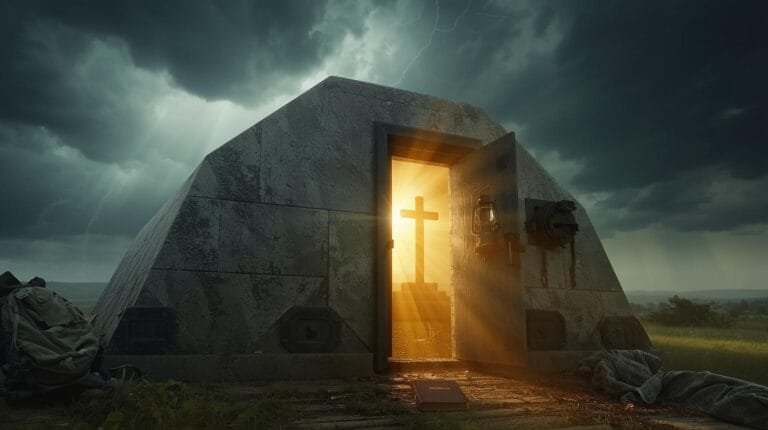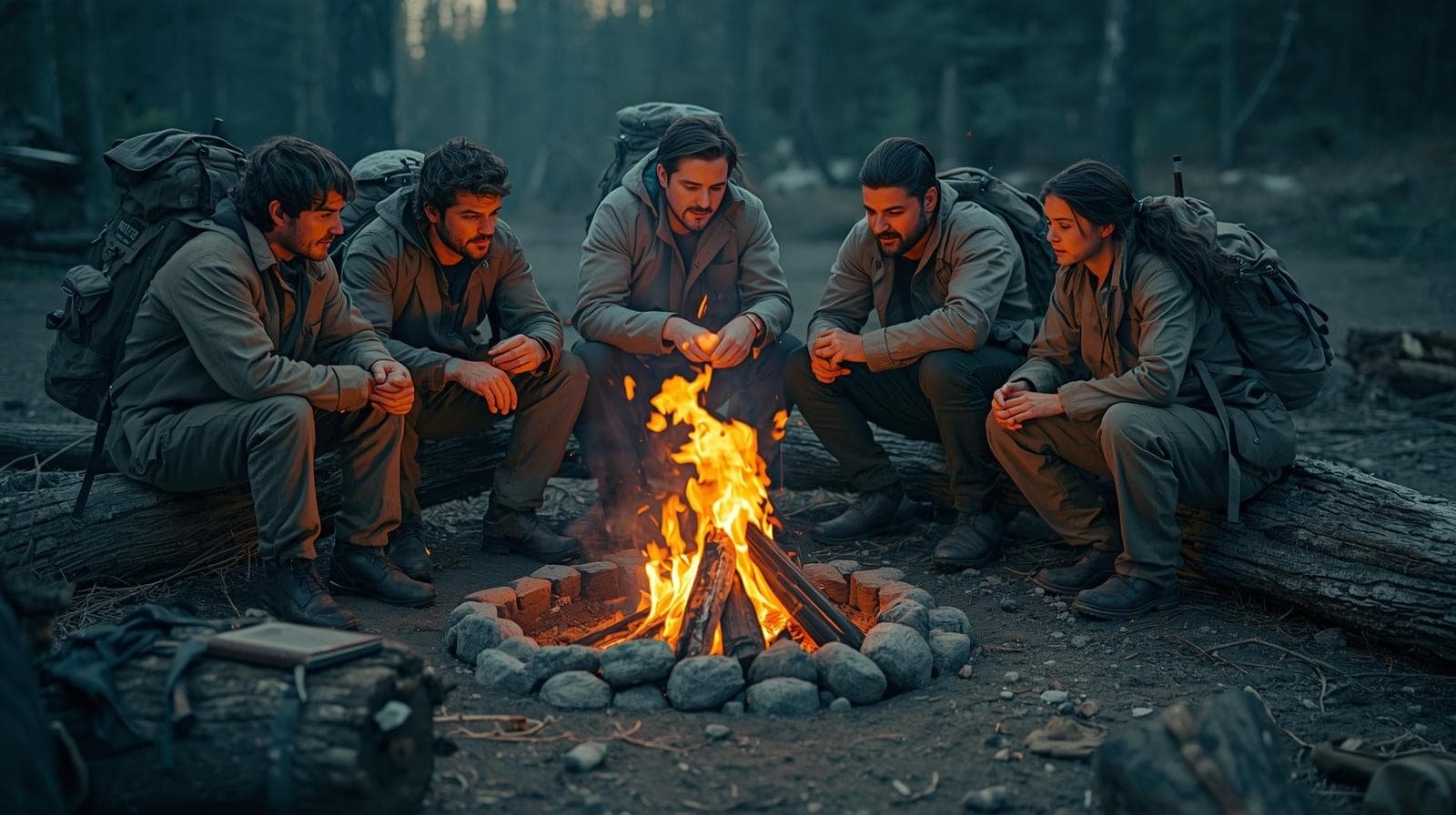
Why Solo Prepping Fails: Proven Strategies for Unstoppable Christian Communities
Why Going It Alone Will Break You
Picture this: You’ve got the bunker stocked, the ammo cans lined, and enough freeze-dried chili to feed a small army. But when the storm comes and the power goes out, you’re sitting there in the dark, alone. Every creak sounds like danger, every drip of water feels like a countdown, and your own thoughts echo louder than the thunder outside.
Being part of a Christian prepper community can significantly alleviate the burdens of prepping. The support and shared knowledge within a Christian prepper community can provide hope during uncertain times.
Congratulations—you’ve built a fortress of solitude. And here’s the catch: solitude can eat you alive faster than thirst or hunger ever will.
A strong Christian prepper community will help you maintain your faith while preparing for the worst. The friendships you build will be invaluable.
Studies show isolated individuals in crisis situations experience a 300% increase in anxiety disorders and a 250% spike in clinical depression within just 30 days. Your mind, designed by God for fellowship, begins to turn against you when cut off from others.
The myth of the lone wolf is also counter to the spirit of a thriving Christian prepper community. Together, we are stronger.
Joining a Christian prepper community allows you to share skills and resources, which is crucial for survival.
The Lone-Wolf Fantasy Is a Lie
Hollywood has been selling us the rugged lone survivor for decades—one man against the wasteland, armed with nothing but grit, guns, and grim determination. But reality is far less cinematic.
Ask anyone who’s spent time in isolation—soldiers, prisoners, even thru-hikers. Isolation warps your mind. Anxiety spikes. Paranoia takes root. Depression creeps in. And when your mental health cracks, all the gear in the world won’t save you.
History backs this up consistently. Hurricane Katrina survivors who formed neighborhood groups had 80% better outcomes than isolated individuals. WWII resistance fighters succeeded through faith-based communities that prayed together and fought together. Great Depression families who stayed connected to church communities had significantly higher survival rates.
Your health and peace of mind are priorities in a Christian prepper community. Everyone contributes to helping each other stay grounded.
In a Christian prepper community, you not only prepare for disasters but also grow in faith together.
Faith is the backbone of any Christian prepper community, guiding your preparedness efforts.
The Biblical Foundation for a Christian Prepper Community
Scripture couldn’t be clearer about God’s design for human relationships and mutual support:
“Two are better than one, because they have a good return for their labor: If either of them falls down, one can help the other up. But pity anyone who falls and has no one to help them up.” (Ecclesiastes 4:9-10)
“And let us consider how we may spur one another on toward love and good deeds, not giving up meeting together, as some are in the habit of doing, but encouraging one another—and all the more as you see the Day approaching.” (Hebrews 10:24-25)
Notice that last verse—“all the more as you see the Day approaching.” The closer we get to uncertain times, the MORE we need community, not less.
Why You Need People As Much As You Need Preps for a Christian Prepper Community
Let’s face it—prepping isn’t just about gear, it’s about grit. And grit isn’t built in a vacuum.
The Theological Tension
Here’s the struggle many Christian preppers wrestle with: How do we balance “trusting in God” with “prudent preparation”? How do we prep without falling into fear or self-reliance?
The answer isn’t found in isolation—it’s found in biblical community that models both faith and wisdom.
You need people who:
- Encourage you when your faith wavers instead of letting anxiety spiral
- Pray with you when panic takes over and provide biblical perspective
- Sharpen your skills when you slack off through iron-sharpening-iron accountability
- Hold you accountable when paranoia sets in by keeping you grounded in truth
- Remind you that God is sovereign even while taking reasonable precautions
- Share the burden of responsibility so it doesn’t crush your spirit
The dirty secret nobody talks about: prepper communities have abnormally high rates of anxiety, depression, and relationship breakdown. Why? Because we often focus on external threats while ignoring internal ones.
Isolation amplifies every threat. When you’re alone with your thoughts, that unusual sound becomes a home invasion. That news headline becomes the end of civilization.
Building a Christian prepper community starts with shared values and beliefs.
Community provides perspective. “Hey, I heard that sound too—it’s just the neighbor’s dog.” “This headline is concerning, but let’s pray about it and think through reasonable responses.”
The truth is, prepping without people is like stockpiling batteries with no flashlight to put them in. You’ve got the resources, but you’ll be fumbling in the dark.
How To Build a Christian Prepper Community
Step 1 – Find Shared Values First
Don’t just team up with anyone who owns a generator. Look for people who share your faith, integrity, and sense of responsibility. That foundation matters more than firepower.
Connecting with like-minded individuals is crucial for a thriving Christian prepper community.
Start with your church:
Engaging with local emergency response teams can strengthen your Christian prepper community.
- Approach your pastor about organizing a “Biblical Stewardship and Preparedness” class
- Look for families who already think about emergency planning
- Connect with veterans, medical professionals, and teachers—they often have preparedness mindsets
- Start a men’s/women’s group focused on “Wise as Serpents, Gentle as Doves” (Matthew 10:16)
Expand to your community:
- Join local CERT (Community Emergency Response Team) programs
- Connect with Christian homeschool co-ops (they often have preparedness-minded families)
- Look into outdoor clubs, especially those with family orientations
- Check out local ham radio clubs (many are populated by preparedness-minded Christians)
Values first. Gear second. You want people who will pray before they panic, who see preparedness as stewardship rather than paranoia, and who understand that our ultimate security is in Christ—not our cache.
Practice regular training sessions to improve skills in your Christian prepper community.
Step 2 – Train Together
Trust isn’t built in talk, it’s built in sweat. When you train together, you learn each other’s character under pressure.
Skills training builds community:
- Host monthly “skills nights” at church: fire starting, water filtration, first aid, food preservation
- Go on group camping trips with loaded packs (teaches you who complains and who encourages)
- Organize a church “disaster readiness” day with local fire departments or Red Cross
- Practice communication drills with radios and run basic medical training scenarios
Spiritual preparation is equally important:
- Study biblical passages about trials, wisdom, and community
- Practice group prayer during stressful training
- Discuss how to maintain witness and testimony during crisis
- Role-play scenarios that test both practical and spiritual responses
Include all generations:
- Age-appropriate skills training for children
- Learning traditional skills from older generations
- Using young adults’ technical and physical capabilities
- Creating traditions around preparedness that feel hopeful, not fearful
Training together doesn’t just sharpen skills—it builds muscle memory and camaraderie. You learn who you can count on when things get tough.
Incorporating spiritual discussions strengthens the bond in your Christian prepper community.
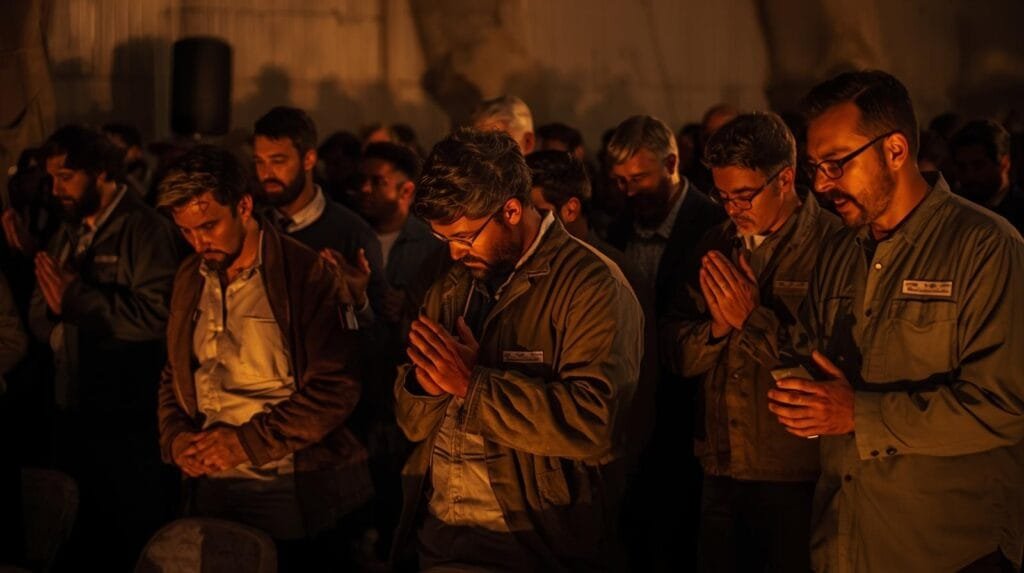
Step 3 – Practice Vulnerability
This is the hardest part for preppers, especially men. We love to act like unshakable fortresses of willpower. But saying, “Hey, I’m stressed—I need help” isn’t weakness. It’s biblical community.
Encouraging transparency about struggles builds trust within the Christian prepper community.
Create safe spaces for honesty:
- Start meetings with prayer and check-ins about struggles
- Share your own fears and anxieties first—model vulnerability
- Make it normal to admit when preparedness anxiety is affecting your family
- Address signs of paranoia or obsessive behavior with love and truth
Pray together regularly:
- Deep intercession for each other’s fears and struggles
- Pray specifically about preparedness anxieties and trust in God’s sovereignty
- Include spouses and children in prayer times when appropriate
Keep mental health as important as gear checks: Schedule regular “spiritual and emotional preparedness” discussions and hold each other accountable for maintaining healthy family relationships.
When you normalize vulnerability, you prevent isolation from becoming the silent killer in your group.
Step 4 – Create Rhythms of Rest
Creating a culture of vulnerability can be transformative for your Christian prepper community.
Community isn’t just about “doing.” It’s also about resting together. A shared meal. A Sunday service. A Sabbath hike. This balance prevents burnout—the most overlooked mental health threat for preppers.
Build restorative rhythms:
- Monthly potluck dinners where preparedness talk is limited to 30 minutes max
- Family camping trips that focus on enjoyment, not just training
- Service projects that help others, not just yourselves
- Holiday celebrations that remind you what you’re protecting
- Regular Sabbath observance that forces you to stop “doing” and start “being”
Remember: We’re not just preparing to survive—we’re preparing to serve. We’re not hoarding resources for ourselves—we’re stewarding them for our communities.
Key Considerations for a Christian Prepper Community
Lone-Wolf Myth vs. Biblical Reality
Pop culture worships the lone wolf. The Bible doesn’t.
Jesus sent disciples out two by two (Luke 10:1). Paul built churches, not bunkers (Acts 14:23). The early Christians survived persecution by sticking together, not scattering apart (Acts 2:42-47). Joseph prepared Egypt through community organization (Genesis 41). Even Noah’s ark was about preserving community (Genesis 7:9).
Praying together reinforces the connections found in a Christian prepper community.
Biblical prepping is communal prepping.
Navigating Church Resistance
Many churches are uncomfortable with preparedness discussions. Frame it as stewardship: “We want to be wise stewards of the resources God has given us.” Emphasize service, not survival: “How can we be prepared to serve our community in crisis?” Start with basic emergency preparedness and partner with local emergency services for credibility.
Address theological concerns directly: acknowledge the tension between trust and preparation, study biblical examples, and emphasize that ultimate security comes from God, not supplies.
Avoid Toxic Groups
Balancing work and rest is vital for sustaining a healthy Christian prepper community.
Red flags to watch for:
- Constant paranoia and fear-mongering
- Ego-driven leadership that doesn’t accept input
- Anti-government extremism that promotes violence
- Unhealthy spiritual dynamics where preparation becomes works-based salvation
That’s not resilience—it’s a cult with ammo. Don’t confuse groupthink with genuine community.
Healthy Christian prepper communities feature open discussion, servant leadership, integration with broader church and community, balance between preparation and trust in God, and focus on serving others.
Wrapping Up: My Experience
When I first started prepping, I thought strength meant independence. Stockpile more. Train harder. Need nobody. I had enough MREs to feed my family for months, enough ammo to outfit a small militia, and enough paranoia to keep me awake at night.
But over the years, I’ve realized something sobering: the strongest preppers are the ones with people. The most prepared families are the ones connected to prepared communities. The most peaceful preparedness comes from knowing you’re not facing uncertainty alone.
Ultimately, the strength of a Christian prepper community lies in its members’ faith and support for one another.
I’ve watched supposedly “prepared” individuals crack under the pressure of extended isolation. I’ve seen families torn apart by preparedness anxiety that was never balanced with community support. I’ve witnessed the slow erosion of faith that happens when fear becomes the primary motivator for action.
But I’ve also seen the opposite. I’ve watched Christian prepper communities rally around families facing job loss, medical crisis, or natural disaster. I’ve seen children grow up with confidence instead of anxiety because their preparedness was rooted in hope and community.
Your gear will break. Even the best equipment fails when you need it most.
Your food will run out. No stockpile lasts forever, and logistics always get complicated.
Your ammo will run dry. Conflict consumes resources faster than you can imagine.
But community? Community can carry you further than you ever could alone. Faith-based community? That’s the anchor that keeps your mind steady when the storm hits. It’s the reminder that God is sovereign even when circumstances feel chaotic.
Understanding the importance of preparation in a Christian prepper community can foster resilience.
So, stop stockpiling loneliness. Build connections. Build trust. Build faith. Because prepping without people isn’t prepping—it’s just waiting to die with nicer gear.
Field Notes
Quick Grounding Prayer for Isolation
“Lord, remind me I am not alone. Strengthen me to reach out, to connect, and to be part of Your body—even in crisis. Help me remember that my security comes from You, not from my supplies. Use me to serve others. In Jesus’ name, Amen.”
Key Scripture for Community Building
Hebrews 10:24-25 – “And let us consider how we may spur one another on toward love and good deeds, not giving up meeting together, as some are in the habit of doing, but encouraging one another—and all the more as you see the Day approaching.”
Gear & Resources
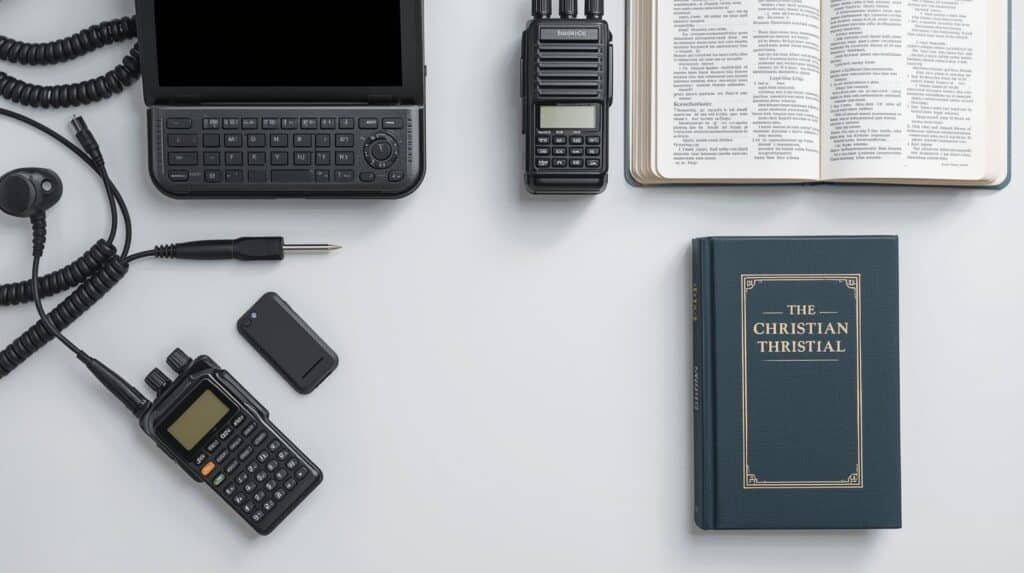
Community Building:
- Book: Life Together by Dietrich Bonhoeffer (essential reading on Christian community)
- Communication: Midland GMRS radios or Baofeng handhelds for group networking
- Training: FEMA CERT training programs (many free, many church-friendly)
Your journey as a prepper is best shared within a Christian prepper community.
FAQ
Q: What if I don’t know any like-minded preppers? Start at your church, outdoor clubs, or community emergency groups. Look for preparedness mindsets, not preparedness gear. Begin with service projects and honest conversations about family emergency planning.
Q: Can I really trust people in a crisis? That’s why you build trust before the crisis. Community is a prep, not a gamble. Start with limited trust and grow gradually through shared training and demonstrated character.
Q: What if my church thinks preparedness shows lack of faith? Frame it as stewardship and service, not survival. Use biblical examples like Joseph preparing Egypt for famine. Start small with basic emergency preparedness and emphasize that ultimate security comes from God, not supplies.
Heads-Up, Fellow Preppers:
Some links in this post are sponsored or affiliate links. If you click and buy, I may earn a small commission—enough to restock my peanut butter and maybe add one more can of chili to the stash. I only recommend gear I trust, use, and would hide in a bug-out bag.

